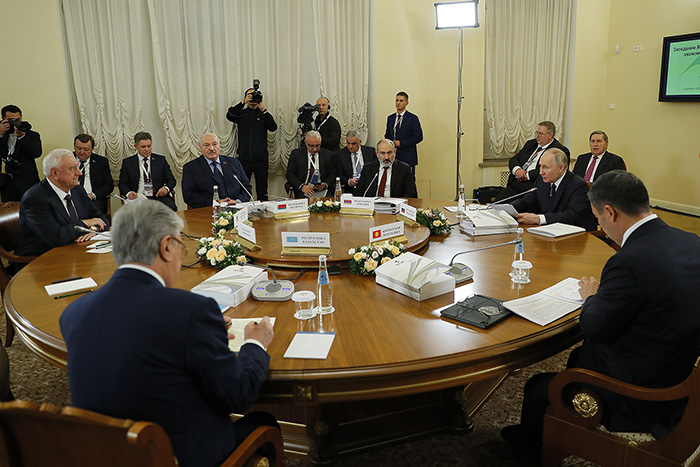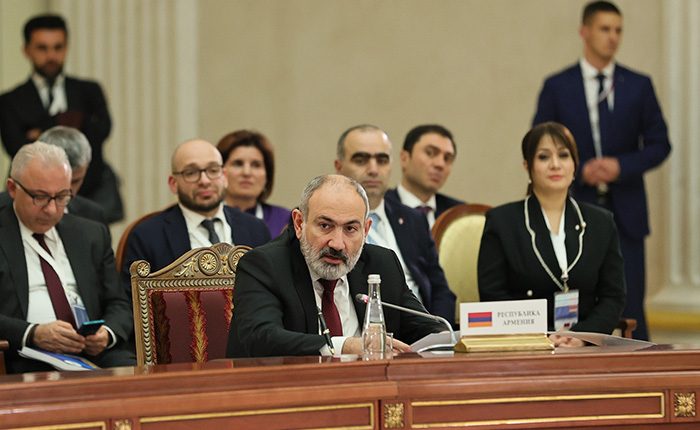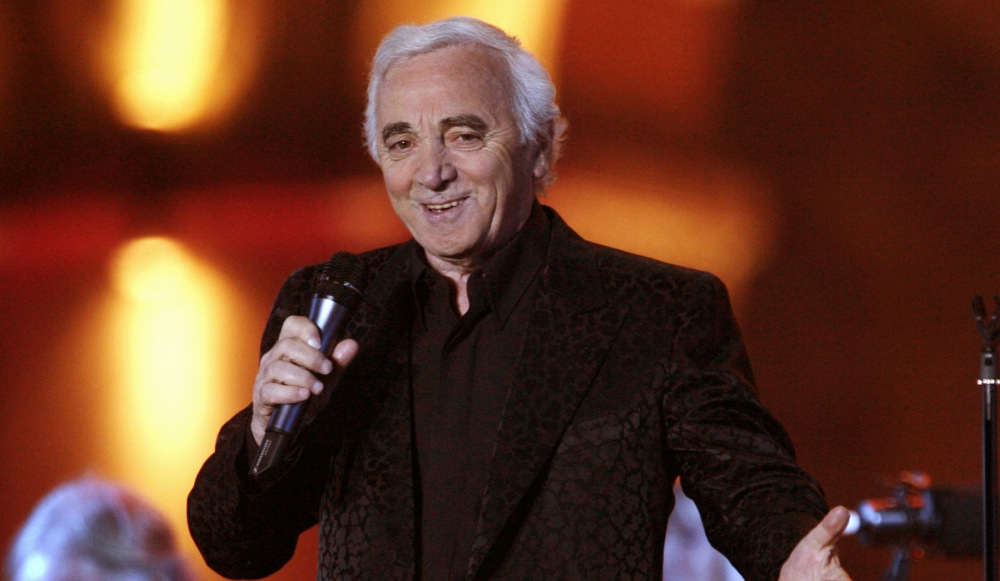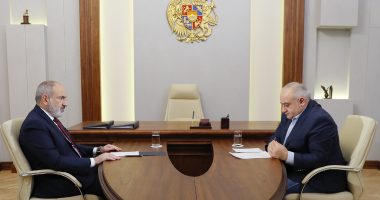SAINT PETERSBURG — Prime Minister Nikol Pashinyan spoke out against attempts to use the Eurasian Economic Union (EEU) for “geopolitical” purposes when he addressed a summit of the leaders of the trade bloc in Saint Petersburg on Monday.
Citing its founding treaty signed by Russia, Armenia and three other ex-Soviet states in 2013, Pashinyan said that the EEU must not have a “political and especially geopolitical agenda.”
He said that Armenia will assume from Russia on January 1, 2024 the presidency in the EEU and expects support and productive cooperation from member states with the purpose of resolving existing issues.
“It is symbolic that Armenia’s chairmanship coincides with the tenth anniversary of the signing of the treaty on the EEU, which is based on the fundamental clause that the EEU is an economic union, which must not have a political and moreover a geopolitical agenda. We continue to perceive it as such and in this very context to develop partnership as part of our economic cooperation, seeking to prevent all attempts of politicizing the Eurasian integration,” he said. “The EEU and its economic principles must not correlate with political ambitions.”
“The basic freedoms of trade and integration cannot and must not be limited due to political considerations. This would definitely lead to an erosion of the fundamental principles of the union,” he added during the summit.


PM Pashinyan said that Armenia welcomes the signing of the EEU free trade agreement with Iran. Pashinyan said that the full format agreement will contribute to the strengthening of trade-economic, logistic and transport connections with Iran and will allow to create a strong contract framework for joint projects.
“At the same time, a number of unresolved principled issues have accumulated within the EEU, such as the pressing need for achieving fundamental solutions regarding agreeing upon the approaches, principles and mechanisms on the activity of common energy markets by member states. In this context, we are ready to display flexible approach in the direction of ensuring the balance of interests of EEU member states around outstanding issues, with the purpose of benefiting from the advantages and potential of the EEU common energy markets,” Pashinyan said.
He said that the absence of a common border with EEU countries creates certain difficulties and economic expenditures for Armenia, which is a challenge, but also an exclusive opportunity for the EEU.
“If we succeed to ensure uninterruptedness of transport, transit and administration through modern technologies, we will have an exclusive chance to develop EEU relations with interested third countries,” Pashinyan said, adding that the introduction of modern digital tracking systems for goods and cargo can also become a productive instrument.










